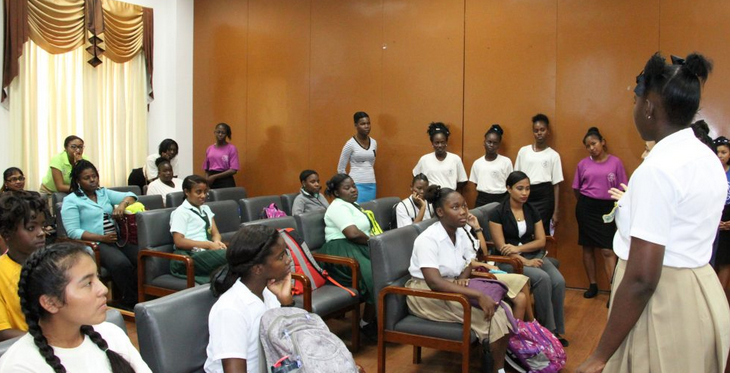According to the Urban Institute, undocumented immigrants already contribute over $6 billion in payroll taxes — funding benefits they can never collect. Undocumented immigrants remain ineligible for food stamps, Medicaid and other forms of welfare.
On Immigration:
Lady Liberty welcomes me home each week as my flight from D.C. passes over New York Harbor. But I fear that too many of my colleagues in Congress are disregarding the “Give me your tired, your poor, your huddled masses” message that welcomed my parents when they first immigrated to this country from Jamaica.
The only point all sides in the immigration debate seem to agree on is that the temperament of the American public has reached a boiling point.
Unfortunately, the immigration debate has been skewed into a narrowly focused “southern border” issue usually expressing the very ill-conceived notion that all migrants are flooding into America illegally from Mexico.
However, there are fewer immigrants in America today than at the beginning of the 20th century, according to the Census Bureau. Further, the Congressional Research Service estimates that about 40 percent of undocumented immigrants actually arrive in the United States legally. Many undocumented immigrants are simply “out of status” and victims of a backlog in government bureaucracy.
Leading proposals in both houses suggest heavy fines as a civil penalty to punish people doing many of the lowest-paid jobs in America. Levying fines on otherwise law-abiding people amounts to little more than a regressive tax on the poorest families in America and abroad.
According to the Urban Institute, undocumented immigrants already contribute over $6 billion in payroll taxes — funding benefits they can never collect. Undocumented immigrants remain ineligible for food stamps, Medicaid and other forms of welfare.
From their meager salaries, these immigrants provide for their families here in America and also send money to support their families in their countries of origin.
These proposals ignore the importance of that financial support to the economic stability of immigrants’ countries of origin. According to the Inter-American Development Bank, Haiti, the poorest nation in the Western Hemisphere, received $1.65 billion in remittances in 2006 from Haitians living abroad.
These remittances represent about one-third of Haiti’s gross national product. Remittances to Latin America and the Caribbean are expected to surpass $100 billion a year by 2010, according to the Inter-American Development Bank’s Multilateral Investment Fund.
Arguments surrounding so-called “touchback” provisions are similarly misguided. For many immigrants in my district, particularly from parts of South Asia, a temporary return to their country of origin is simply not an option, for fear of political retribution or persecution. For others, touchback presents a serious financial burden.
Although proponents of touchback claim immigrants can return to any port of entry, there are no safeguards ensuring nearby ports will accept undocumented migrants from Third World countries. Finally, there is a danger that forcing undocumented immigrants to leave the country in order to gain status may only drive these needed workers underground.
As progressives fight for a more humane immigration policy, we must not accept compromises that hurt immigrants.
A final disturbing trend in the current debate is the attempt by the White House and some Democrats to move away from our family-based sponsorship system toward a worker-based point system that devalues family. Immigrants can never truly integrate into American society without their families.
True reform cannot occur if Congress does not put its money where its mouth is. Congress must give financial support to the immigration infrastructure of this nation. As a nation, we must first address those visitors who arrived in the United States legally and are waiting for their paperwork to be processed.
The overwhelming bureaucratic trap of navigating a sea of more than 70 Citizenship and Immigration Services forms, including forms from the State Department pertaining to visas, must be monitored and accountable to someone.
Until the Department of Homeland Security is reformed, we will continue to get defective end products resulting in innocent people being in a prison with no walls, living in constant fear of the day when that horrible knock from Immigration and Customs Enforcement is heard on the door.
Our current immigration system is literally tearing families apart, leaving children to fend for themselves, or in the care of relatives, neighbors or the foster care system after families have been deported. Working out a comprehensive immigration reform bill will take time.
As the child of immigrants, I’m encouraged that Congress is finally having a conversation about immigration reform. But to pretend reform can occur through a “one size fits all” approach does our nation more harm than good.
Democratic Rep. Yvette Clarke represents the 11th District of New York.
To subscribe to or advertise in New York’s leading Pan African weekly investigative newspaper, please call (212) 481-7745 or send a note to [email protected]
“Speaking Truth To Empower.











